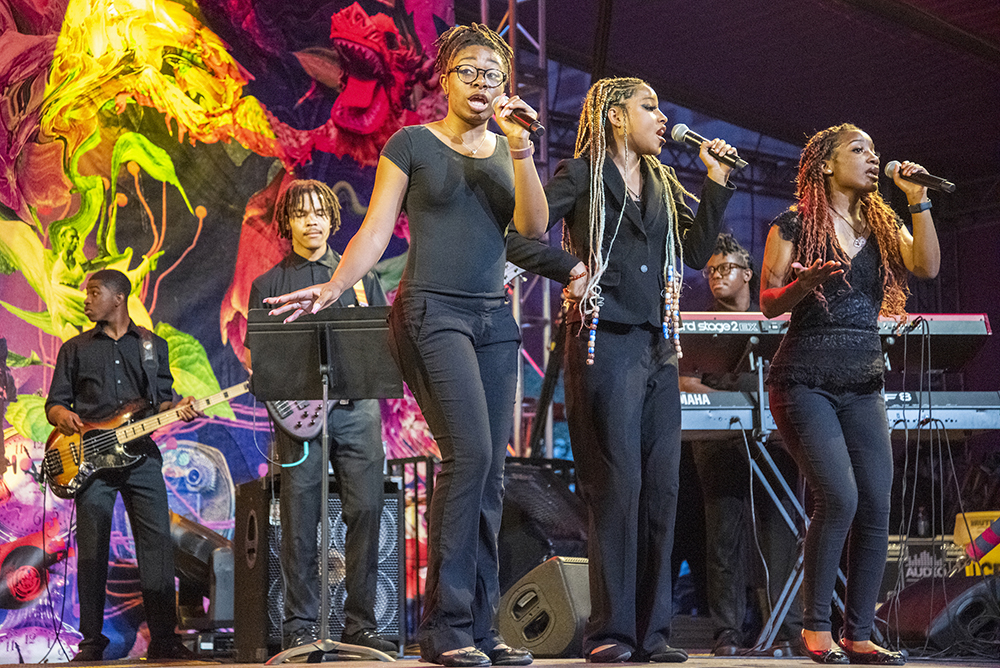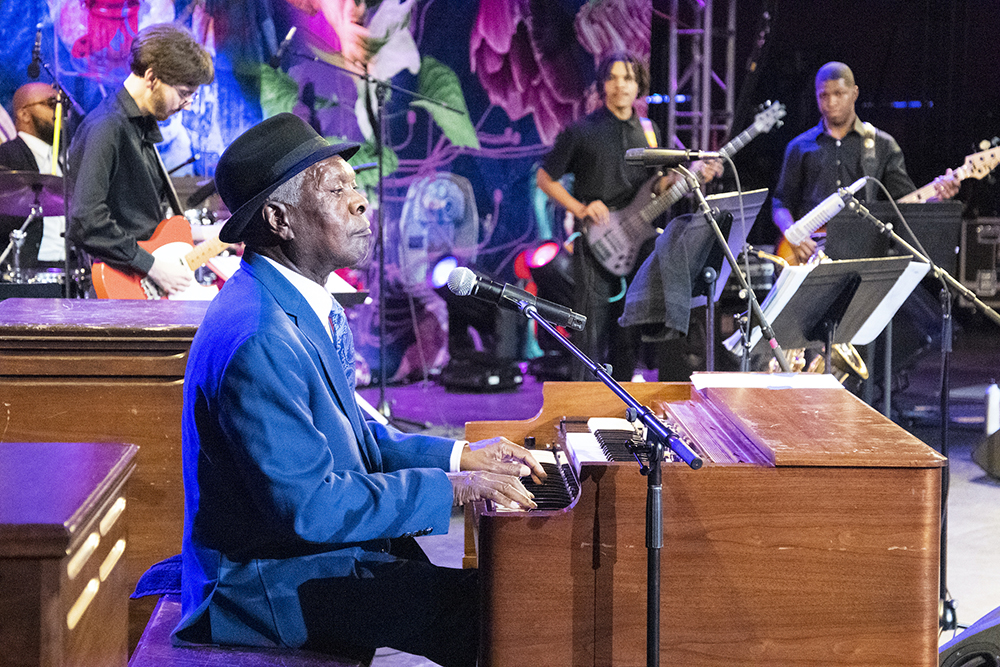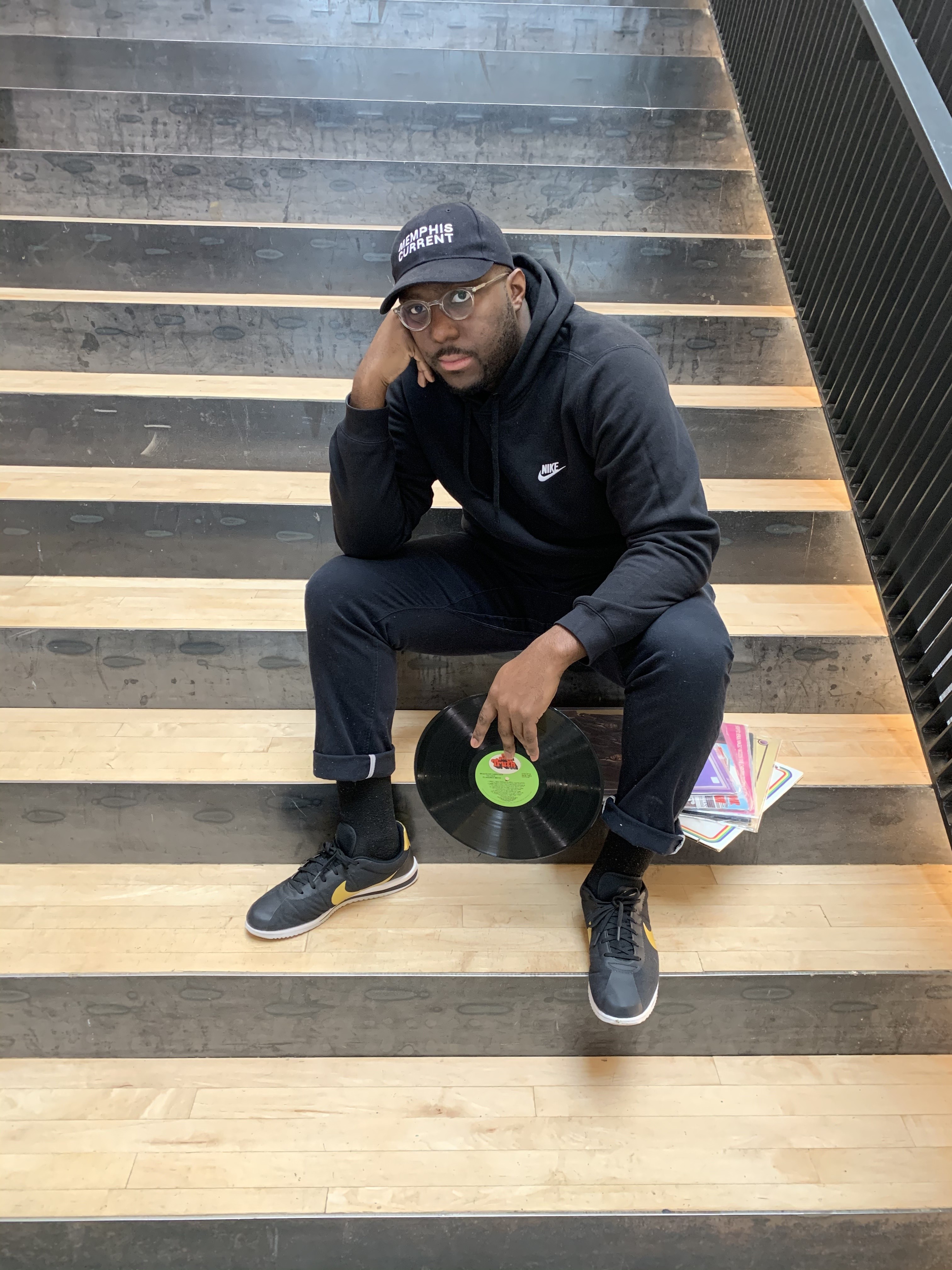Looking out the window onto Broadway, Booker T. Jones seemed to be seeing New York on both that day of July 12, 2023, and the many days past when he frequented the area around Lincoln Center for the Performing Arts. “I would walk right through here,” he reminisced, speaking of his earliest trips to the city with the M.G.’s. “Our agent was on 57th. … We would stay at the Essex Hotel and walk past here on the way to Atlantic Records over on Broadway. And it made me question my age because I thought I remembered them building this Lincoln Center here, but I wouldn’t be that old,” he added with a wink and a grin. “I don’t think so.”
Truth be told, the David Rubenstein Atrium at Lincoln Center, where a packed house had gathered to hear WYXR’s own Jared “Jay B” Boyd interview Jones, had not even been built then. Jones’ memory was correct, however — the first building on the Lincoln Center campus opened in 1962, the same year that Booker T. & the M.G.’s became a household name with the hit “Green Onions.” Now, over 60 years later, Lincoln Center was hosting Booker T. Jones: A Career Retrospective to a rapt New York audience.
Yet there were more gripping things in store that day than hearing the world’s most famous organist’s stories, for the forum was a continuation of a multifaceted series of events dubbed City Soul on the Move, three days in July when Memphis held Manhattan in the palm of its hand.

It began, as so many things do, with Tom Hanks. The actor and director is passionate about his music and, it turns out, his radio. Rock ‘n’ Soul Ichiban, with DJ Debbie Daughtry on WFMU, was a longtime favorite of Hanks, and when Daughtry launched her own internet station, Boss Radio 66 on the Tune In app, he became a DJ for the station himself.
“He’s a huge fan of Booker T.,” Daughtry says of Hanks. “He said that he would love to interview him, and then it just kind of spiraled from there. But the date that we decided on was today, and Tom couldn’t be here.” Asking around for suggested interviewers during a visit to WYXR, Daughtry landed on Boyd, who’s interviewed Jones before at the Stax Museum of American Soul Music. And WYXR’s program manager rose to the occasion, his rapport with Jones only amplified by the fact that Boyd’s mother and Jones shared a piano teacher, Elmertha Cole.
Once the interview was locked in, Daughtry says, “Lincoln Center is the one that said, ‘Why don’t we get the Stax Music Academy [SMA] to come up and play?’ And my mind just exploded!”
With the interview and SMA performance as a centerpiece of Lincoln Center’s Summer for the City series, other Mempho-centric events materialized. The night before, renowned songwriter Greg Cartwright, host of WYXR’s Strange Mysterious Sounds, played a quiet but powerful acoustic set at Union Pool in Brooklyn, accompanied by longtime Reigning Sound keyboardist Dave Amels on harmonium. The stripped-down arrangements only made Cartwright’s songs more powerful, whether they were old recorded favorites like “Reptile Style” or the more subtle songs Cartwright has been writing recently. His encore solo performance of “She’s the Boss,” dedicated to the late Rachel Nagy of the Detroit Cobras, brought the house down. Meanwhile, that same night, Boyd was featured in a lively DJ set at BierWax NYC.
Shortly after Wednesday’s interview, Cartwright and Daughtry played DJ onstage in the Lincoln Center plaza as an audience gathered, several hundred strong, bursting with expatriate Memphians. When the show began, the SMA students handled themselves with a striking professionalism, especially when Jones sat down behind the organ and led the SMA Rhythm Section through some classic M.G.’s numbers. As the students played their parts with precision and passion, backing both Jones and charismatic SMA singers Pasley Thompson, Nicholas Dickerson, Rachael Walker, Khaylah Jones, and Joi Stubbs, Jones looked them over with an unmistakable wonder, the words he’d shared with Boyd earlier still echoing: “Right now I’m full of joy. I was moved by the music and the rehearsal. … They played so well. They didn’t play the music exactly like we did. They put their own twist to it. But it felt so good.”

